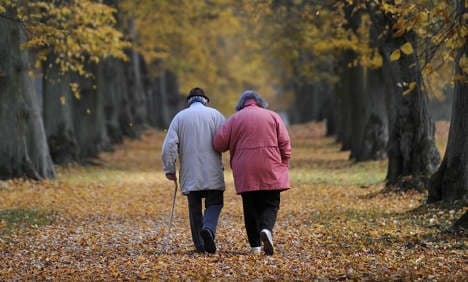Old 'guest workers' much more likely to be poor

Foreigners are more than three times as likely to be poor in their old age as Germans, new data shows. Former "guest workers" are the most likely to be living in poverty.
Politicians are calling on young people across the European Union to migrate to Germany to escape the high unemployment rates at home and fill empty work places. But their predecessors who answered a similar call 40 and 50 years ago have ended up largely struggling, a new study shows.
Eric Seils from the Economics and Social Science Institute of the Hans Böckler Foundation said that 41.5 percent of foreign pensions in Germany were living in poverty - compared with 15.1 percent of the population in general.
Single people with €848 a month to live on are considered "in danger" of poverty, he said in a statement.
His study of recent data showed that 12.7 percent of foreigner pensioners were also receiving emergency top-up social security payments, while the figure for German pensioners was just 2.1 percent.
The Frankfurter Rundschau newspaper suggested that people who moved to Germany as "guest workers" from Italy, Turkey, Spain and the former Yugoslavia during the 1950s often worked for large industrial companies. Yet they mostly took on jobs that were not very skilled and thus were poorly paid. And many lost their jobs in the 1960s when the economy stalled.
The foreigners that German politicians want to attract to the country today are more skilled and have greater chances of getting good jobs and corresponding pension plans. But hundreds of thousand of people from abroad also today work in low-skilled, badly paid jobs in health care, construction and service industries. Many do not have proper social insurance coverage and are in real danger of ending up like their older predecessors.
Seils has called for at the very least, the German authorities to make greater efforts to ensure poverty-stricken pensions are informed about the basic benefits available to them when they find their monthly income is not enough.
The Local/hc
Comments
See Also
Politicians are calling on young people across the European Union to migrate to Germany to escape the high unemployment rates at home and fill empty work places. But their predecessors who answered a similar call 40 and 50 years ago have ended up largely struggling, a new study shows.
Eric Seils from the Economics and Social Science Institute of the Hans Böckler Foundation said that 41.5 percent of foreign pensions in Germany were living in poverty - compared with 15.1 percent of the population in general.
Single people with €848 a month to live on are considered "in danger" of poverty, he said in a statement.
His study of recent data showed that 12.7 percent of foreigner pensioners were also receiving emergency top-up social security payments, while the figure for German pensioners was just 2.1 percent.
The Frankfurter Rundschau newspaper suggested that people who moved to Germany as "guest workers" from Italy, Turkey, Spain and the former Yugoslavia during the 1950s often worked for large industrial companies. Yet they mostly took on jobs that were not very skilled and thus were poorly paid. And many lost their jobs in the 1960s when the economy stalled.
The foreigners that German politicians want to attract to the country today are more skilled and have greater chances of getting good jobs and corresponding pension plans. But hundreds of thousand of people from abroad also today work in low-skilled, badly paid jobs in health care, construction and service industries. Many do not have proper social insurance coverage and are in real danger of ending up like their older predecessors.
Seils has called for at the very least, the German authorities to make greater efforts to ensure poverty-stricken pensions are informed about the basic benefits available to them when they find their monthly income is not enough.
The Local/hc
Join the conversation in our comments section below. Share your own views and experience and if you have a question or suggestion for our journalists then email us at [email protected].
Please keep comments civil, constructive and on topic – and make sure to read our terms of use before getting involved.
Please log in here to leave a comment.